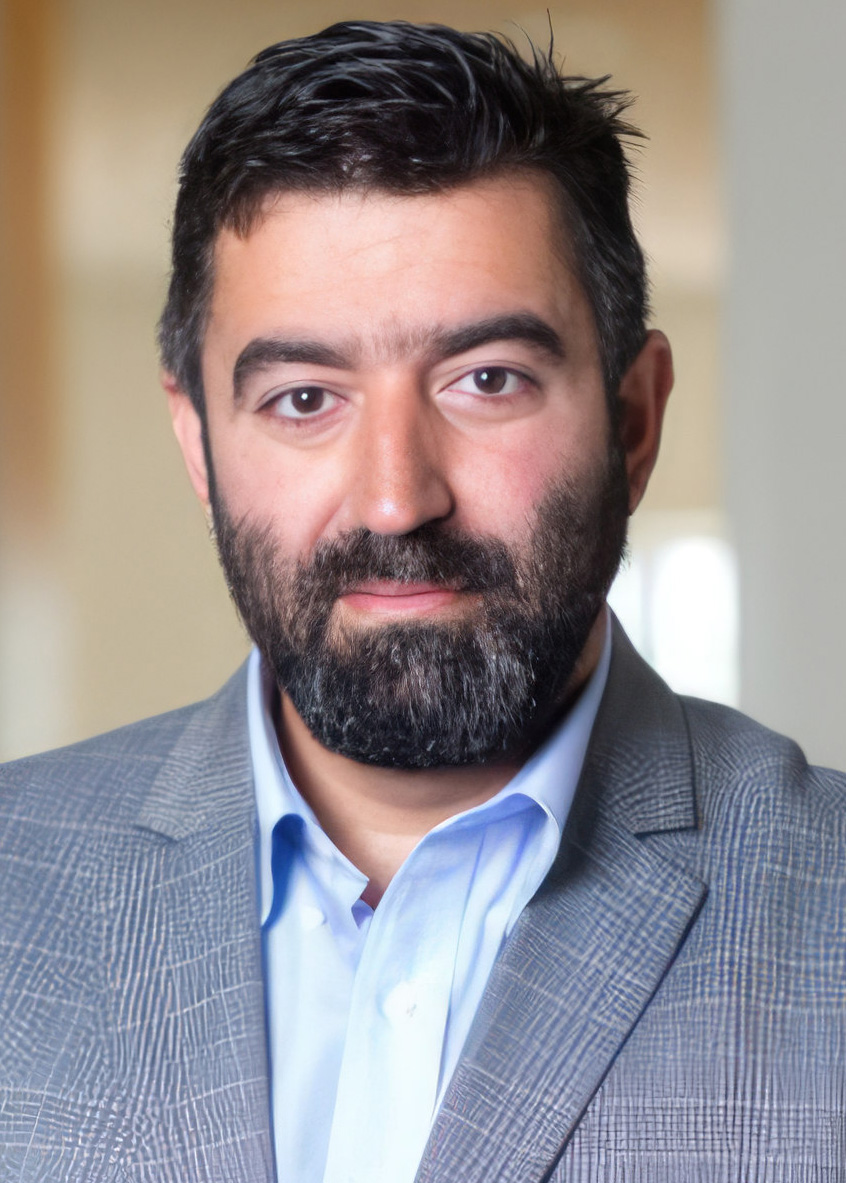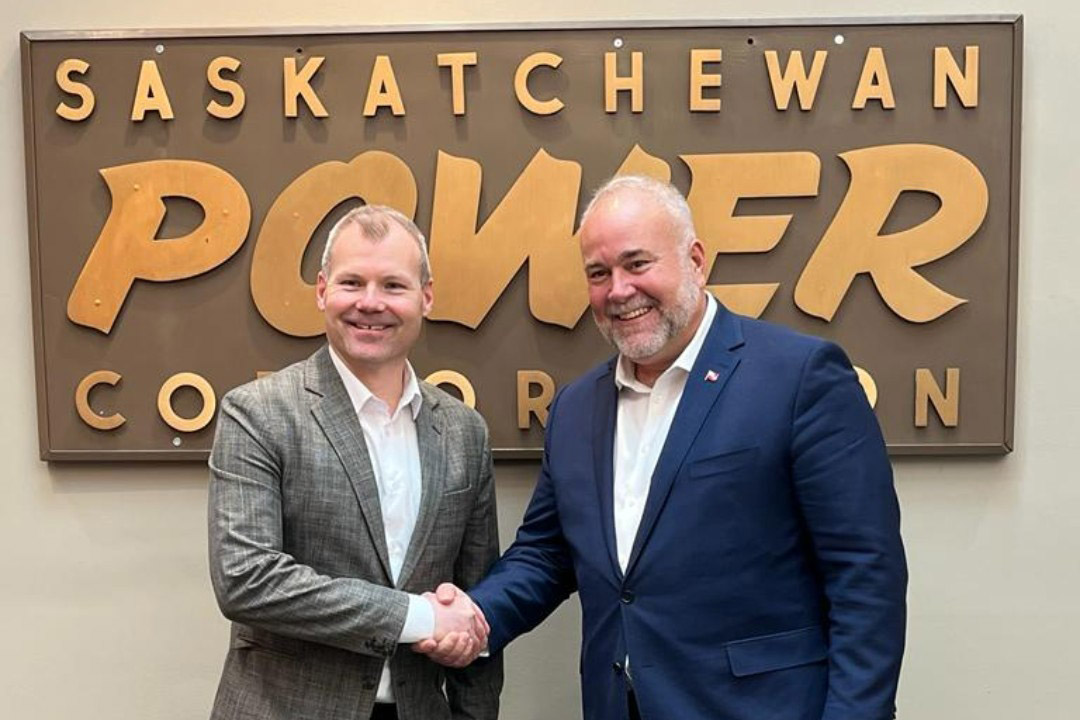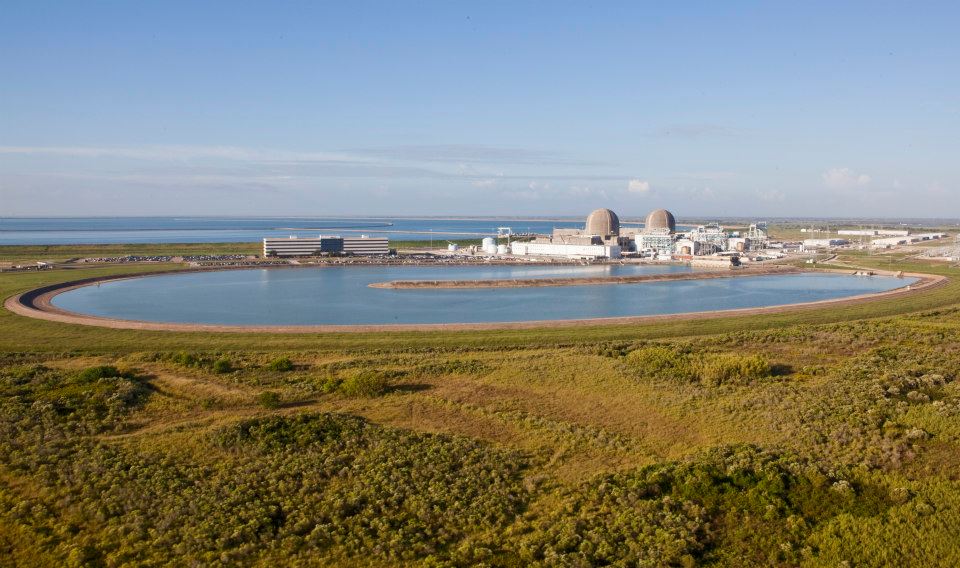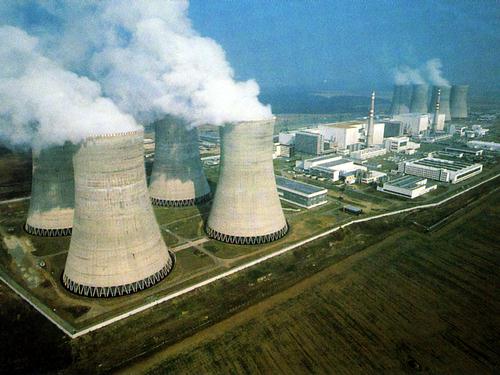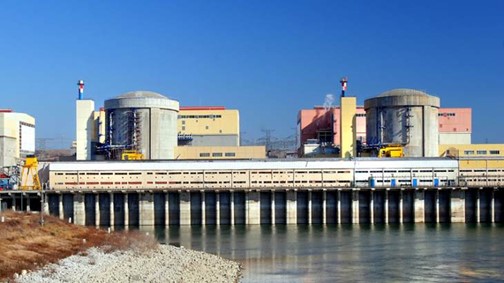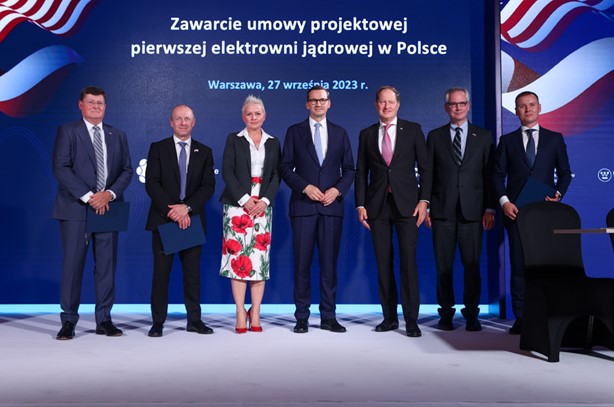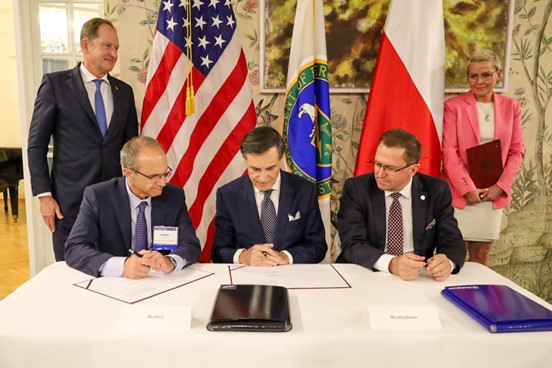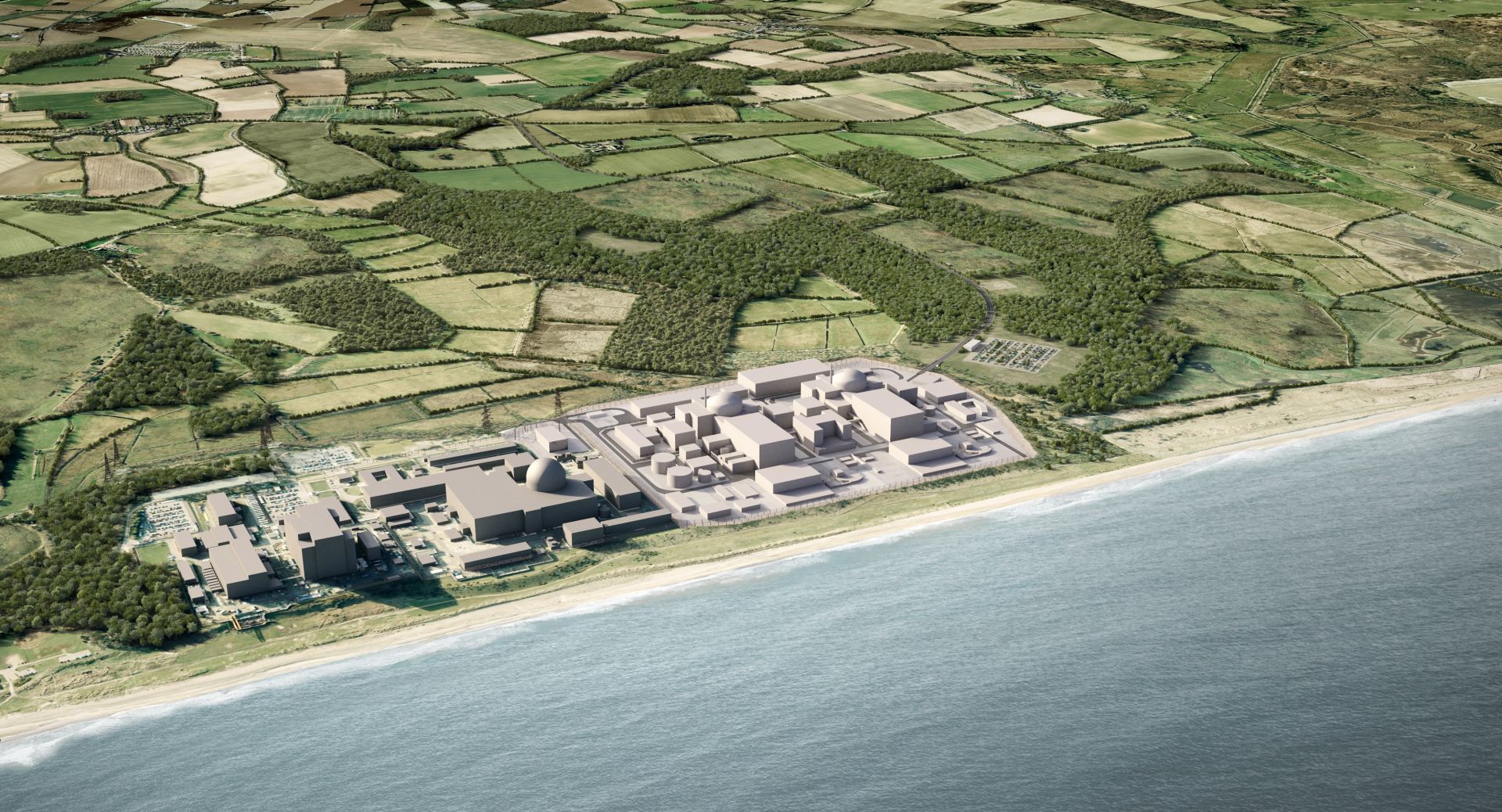Kassym-Jomart Tokayev, president of Kazakhstan (standing), looks on as the commercial uranium fuel supply contract between ENEC and Kazatomprom is signed. (Photo: Kazatomprom)
On the margins of the COP28 climate conference in Dubai, UAE, this week, Barakah nuclear plant owner Emirates Nuclear Energy Corporation (ENEC) signed its first commercial uranium fuel supply contract with Kazatomprom, in addition to memorandums of understanding with two U.S.-based advanced reactor developers—TerraPower and GE Hitachi Nuclear Energy (GEH).
Eric Mathet (left), operational lead of the IAEA’s nuclear infrastructure development section, presents the INIR mission report to Antti Tooming, deputy secretary general of Estonia’s Ministry of Climate and head of the country’s nuclear energy working group.
A team of experts from the International Atomic Energy Agency recently concluded an eight-day mission to Estonia, finding that the Baltic state has developed a comprehensive assessment of its nuclear infrastructure development needs, enabling the government to make an informed decision on whether to pursue a nuclear power program.
The South Texas Project nuclear power plant. (Photo: STP Nuclear Operating Co.)
Constellation Energy announced last week that it has completed its acquisition of NRG Energy’s 44 percent ownership stake in the South Texas Project nuclear power plant.
The Dukovany nuclear power plant. (Photo: INSP)
Elektrárna Dukovany II (EDU II), a subsidiary of Czech utility ČEZ, has received final bids for the construction of a fifth reactor at the Dukovany plant, as well as nonbinding bids for three additional units to be sited at Dukovany and at Temelín, the Czech Republic’s other nuclear power facility. (Dukovany currently houses four Russian VVER-440/V213 pressurized water reactors, while Temelín is home to two VVER-1000/V320s.)
IAEA director general Grossi delivers the opening plenary at the Second International Conference on Climate Change and the Role of Nuclear Power. (Photo: IAEA)
Romania’s Cernavoda Units 1 and 2. (Photo: Nuclearelectrica)
Canada will provide C$3 billion (about $2.2 billion) in export financing to Romania’s nuclear operator, Nuclearelectrica, in support of Canadian participation in the project to complete Units 3 and 4 at the Cernavoda nuclear plant, Canadian minister of energy Jonathan Wilkinson announced last week.
At the September 27 signing ceremony for the engineering services contract to build Poland’s first nuclear power plant are, from left, John Howanitz, president of Bechtel’s nuclear, security, and environmental global business unit; Westinghouse president and CEO Patrick Fragman; Polish government plenipotentiary for strategic energy infrastructure Anna Łukaszewska-Trzeciakowska; Polish prime minister Mateusz Morawiecki; U.S. ambassador to Poland Mark Brzezinski; assistant secretary of energy for international affairs Andrew Light; and Polskie Elektrownie Jądrowe president Mateusz Berger. (Photo: Bechtel)
Just one week after inking a consortium agreement to partner on the design and construction of Poland’s first nuclear power plant, Westinghouse Electric Company and Bechtel joined state-owned Polish utility Polskie Elektrownie Jądrowe (PEJ) in Warsaw on Wednesday for the signing of the project’s engineering services contract.
At the Bechtel/Westinghouse consortium agreement signing ceremony at the U.S. embassy in Warsaw, were, from left, U.S. ambassador to Poland Mark Brzezinski; Ahmet Tokpinar, general manager of Bechtel’s nuclear power business line; Elias Gedeon, senior vice president for commercial operations at Westinghouse; Mirosław Kowalik, president of Westinghouse Poland; and Anna Łukaszewska-Trzeciakowska, Poland government plenipotentiary for strategic energy infrastructure. (Photo: Bechtel)
Westinghouse Electric Company and engineering, construction, and project management firm Bechtel on September 20 announced the signing of a consortium agreement to partner on the design and construction of Poland’s first nuclear power plant.
Westinghouse president and CEO Patrick Fragman (seated at left) and Energoatom president Petro Kotin (seated at right) sign an MOU on AP300 deployment in Ukraine. Standing behind Fragman and Kotin is Ukrainian energy minister German Galushchenko. (Photo: Energoatom)
Westinghouse Electric Company and Ukraine’s nuclear operator Energoatom have signed a memorandum of understanding on the development and deployment of the American firm’s AP300 small modular reactor in the Eastern European state.
A computer-generated rendering of the Sizewell site on the Suffolk coast. Sizewell A and B are to the left and center (respectively) in this image; the section to the right is the Sizewell C area. (Image: EDF Energy)
In the second tranche of planned investment in Britain’s nuclear sector this summer, the U.K. government has made available £341 million (about $426 million) of previously allocated funding for development work on the proposed Sizewell C project in Suffolk, England.
Executives from Westinghouse and Slovenské Elektrárne met in the Slovakian capital of Bratislava to sign the agreement to license and supply VVER-440 fuel assemblies. From left are Aziz Dag, senior vice president and managing director of Westinghouse Electric Sweden; Lukáš Maršálek, deputy director for the accounting, finance, and control department of Slovenské Elektrárne; Tarik Choho, Westinghouse president of nuclear fuel; and Branislav Strýček, director general of Slovenske Elektrárne. (Photo: Westinghouse)
In the latest example of Europe’s move away from its dependence on Russia for VVER reactor fuel, Westinghouse Electric Company on Friday signed a long-term agreement with Slovakia’s nuclear power plant operator, Slovenské Elektrárne, to license and supply VVER-440 fuel assemblies.


